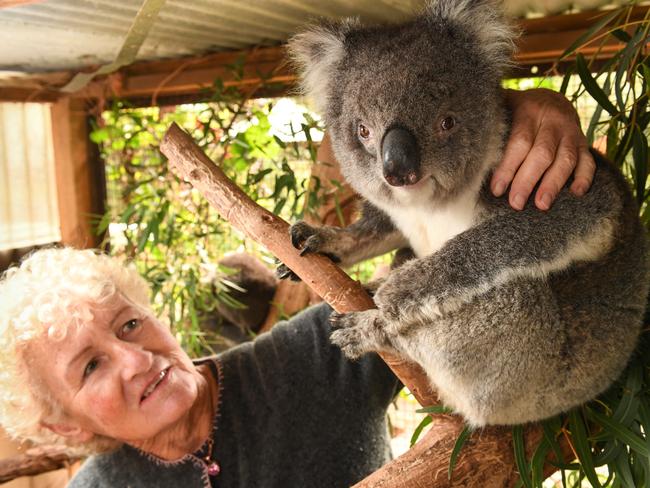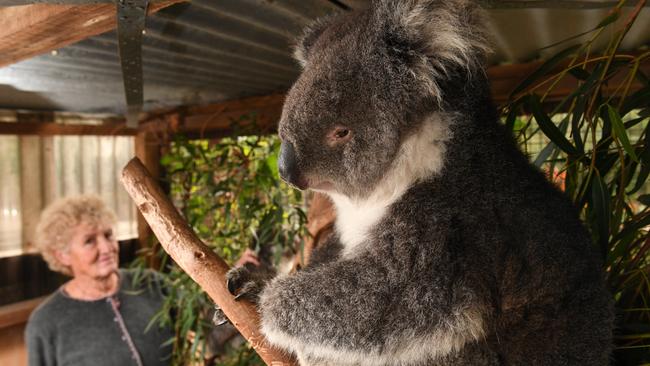Mornington Peninsula’s koalas face ‘decimation’ unless authorities take action, say activists
The Mornington Peninsula’s koala population is under imminent threat of being wiped out, with wildlife experts warning disease, loss of vegetation and car incidents are to blame for the Aussie icon’s bleak future.

South East
Don't miss out on the headlines from South East . Followed categories will be added to My News.
The Mornington Peninsula’s koalas face decimation unless authorities enforce tougher planning laws and protect habitat, wildlife carers and activists warn.
Carers told Leader the koala population had dropped by 30 per cent since the 1990s.
Jennie Bryant, who runs a koala hospital at Tyabb, said increased traffic was leading to horrific injuries.
“I have cried witnessing their bodies with the most horrific injuries you could ever see in your life,” she said.
FRANKSTON TRADERS FEARFUL OF LAWLESS TEENS
‘CLUELESS’ HUMANS BLAMED FOR DOG ATTACKS
MORNINGTON PENINSULA HOUSE GONE IN 60 SECONDS
Ms Bryant treated up to 140 koalas annually in the 1990s, but she now received only 50 to 80 a year and said it was due to a drastic drop in the overall koala population.
“They will die out unless radical action is taken. They are getting hit by cars and dying of disease.”

Mornington Peninsula Koala Preservation president Dirk Jansen said land clearing and warmer temperatures were posing a major threat.
“I keep saying the koala is the Orang-utan of Australia,” he said.
“The more trees and habitat we lose, the koalas are one of the first to go because they are so closely linked to trees.”
Mr Jansen said tougher planning laws and wildlife corridors to connect reserves were essential to protect koalas.
Wildlife carer Brenda Marmion said the koalas faced a dire future unless action was taken.
“More people are coming to the Peninsula and clearing land and not replanting trees,” she said
“The koalas are going further and further to look for food.”
The State Government’s Department of Environment, Land, Water and Planning said southern Victoria had a thriving population compared to northern states.
But officials acknowledged “fragmentation of habitat” was a serious issue for koala conservation because they had a specialised low-energy, low-nutrient diet.
This meant koalas had a limited amount of energy available to use travelling between trees, they said.
Mornington Peninsula Shire Council mayor David Gill said state authorities were in denial about the seriousness of the issue.
“We are losing koalas — if we can’t save koalas, what can we save?”
He said the council was installing roadside wildlife warning signs to reduce injuries to koalas.

